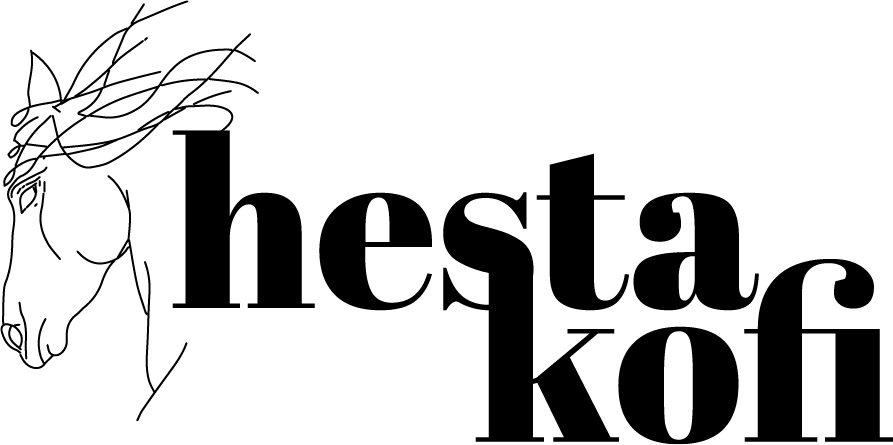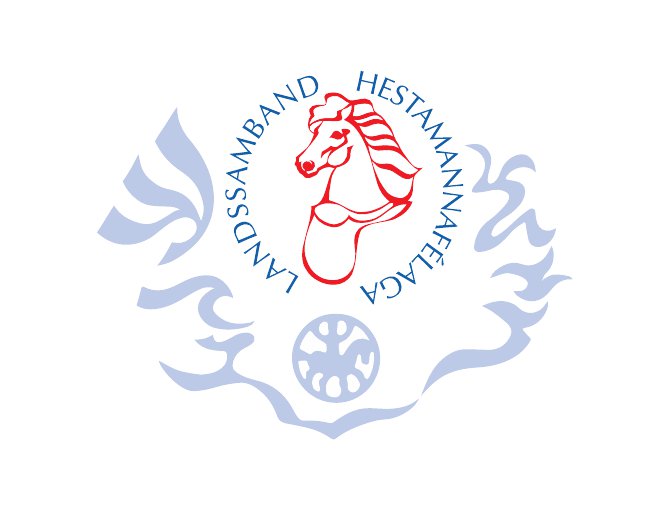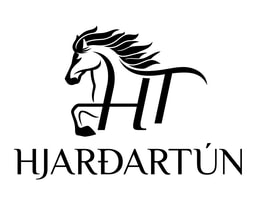Everyone knows Johnny Marks’s “Rudolph the Red-Nosed Reindeer” but in Icelandic the beloved Christmas song features an Icelandic horse.
Christmas 1967 was coming up. Across the country, Icelandic children sat excitedly in front of the television screens because children’s programme Stundin okkar was about to begin. On the show, a children’s choir performed a famous Christmas song by Johnny Marks (originally “Rudolph the Red-Nosed Reindeer”) with new lyrics about a foal named Fákur. The lyrics were written by Hinrik Bjarnason, teacher and later director of programming at Icelandic broadcasting service RÚV, who had been the first presenter of Stundin okkar when it premiered at Christmas 1966.
Hinrik had been listening to an American Christmas album at home felt inspired to write Icelandic lyrics to many of the songs. He decided to adapt Johnny Marks’s “Rudolph the Red-Nosed Reindeer”– one of the most popular Christmas songs of all time – so that it would feature a horse instead of a reindeer and thus bring it closer to the reality of Icelandic children. He called his version “Folaldið mitt, hann Fákur” (“My Little Foal Named Fákur”).
My Little Foal Named Fákur
My little foal named Fákur
had a hoof as white as snow
whenever he went out running
he kicked up dust where’er he’d go
All of the other horses
mocked his hoof and called him names
They had fun while poor ‘ol Fákur
watched and stood alone all day.
Then one snow-filled Christmas Eve
Santa Claus did say:
Fákur you’re so strong and good
Won’t you pull my sleigh of wood?
Now all the horses cheered him
celebrating as a herd:
Our little white-hoofed Fákur,
is famous all o’er the world!
(By Hinrik Bjarnason. Translation by Larissa Kyzer.)
„I omitted the reindeer but adapted the song to horsemanship,” says Hinrik. “A reindeer with a glowing red nose is somewhat of a fairy-tale creature but everyone knows foals.” Originally, the reindeer calf Rudolph saved Santa Clause after the other reindeer had mocked his red nose. Now, Fákur the foal, whose white hoof had made him an outcast, came to Santa’s rescue by pulling his sleigh through a snowstorm. The feat earned him fame and the respect of the other horses.
Hinrik, who was born in 1934, explains that even though he hasn’t practiced horsemanship as an adult, he “grew up on horseback” and rode bareback until his mid-teens. “It was typical for my generation. I rode working horses and knew the environment [of horsemanship] well.”
“Folaldið mitt, hann Fákur” was recorded on a few albums, originally in 1968, and published in the book Við hátíð skulum halda (“The Holidays, We Shall Celebrate”) in 1987, including further Christmas lyrics by Hinrik and illustrations by his son, Bjarni Hinriksson.
Horses have also inspired other lyrics by Hinrik. “In ‘Twelve Days of Christmas’ – which I call ‘Thirteen Days of Christmas’ because we have thirteen Christmas days in Iceland – this line appears: ‘On the thirteenth day of Christmas, Jonas gave to me, thirteen obedient horses…” He also wrote lyrics featuring horses to a third Christmas song, Felix Bernard’s “Winter Wonderland”. His version is called: “Í skíðabrekkunni”, or “In the Ski Slope”.
Even though more Icelanders may be familiar with a more direct translation of Johnny Marks’ “Rudolph the Red-Nosed Reindeer” by Elsa E. Guðjónsson from 1955, “Folaldið mitt, hann Fákur” proved very popular first after its release and has been sung on various occasions. It has, for example, been performed by Brokkkórinn, the Icelandic horse people’s choir.
We at Horses of Iceland wish you all Happy Holidays!
Text: Eygló Svala Arnarsdóttir. Photos: Louisa Hackl.
.jpg?280x160;crop)
.jpg?280x160;crop)
.jpg?280x160;crop)
.jpg?280x160;crop)
.jpg?280x160;crop)





















-1.jpg)






